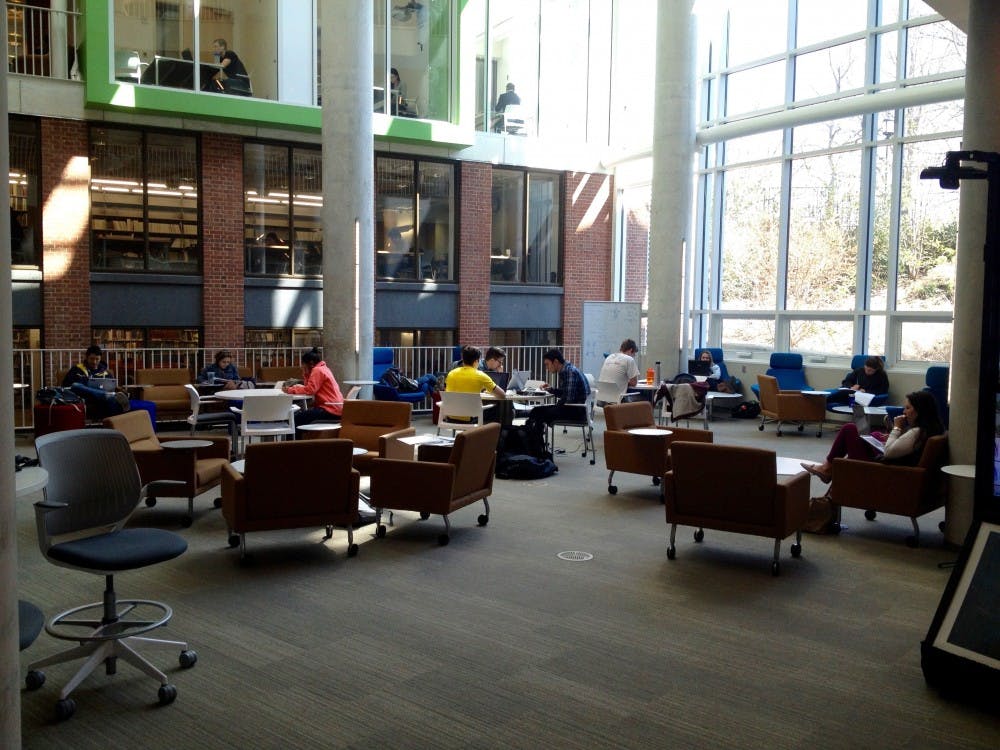As they returned to campus this January, students working as leaders in the PILOT program were greeted with an email informing them that the program would be making cutbacks, including some leaders not being assigned a session for the semester. This is terrible news.
PILOT is a program that provides free group tutoring sessions for large foundational classes like organic chemistry and physics. Students who previously did well in those classes lead the sessions and are paid by the University.
Unfortunately the great demand for this service during the fall semester — the first fall semester where the freshman class did not benefit from covered grades — caused the program to use more than half its budget for the semester, leading to cutbacks for the spring. On Thursday, Feb. 1, some headway was made, and the school budgeted some emergency money to fund a few more sessions. Still, it is unclear how much money the school allocated and whether it will be enough to meet demand for spring tutoring or even to employ all the leaders who were employed in the fall semester.
It is unacceptable that the University would allow such a vital program for the academic success of our students to hang in budgetary limbo, especially when they lean on that program as a rhetorical justification for their policy changes. In their email announcing the end of covered grades on May 6, 2016, Deans Wendland and Schlesinger wrote that PILOT was one of the “comprehensive and better coordinated academic support services and programs” that would facilitate “strong transition support” to a system without covered grades.
A “comprehensive” program must necessarily have the budget to accommodate all the demand it receives. When it cannot meet that demand, real students are left without that support structure. And without covered grades, they have one less safety net for when they go without academic support services.
Beyond that, the PILOT program is simply a very strong support service that ought to reach as many students as possible. PILOT is structured in such a way that it teaches much more than just the content of the classes involved. Leaders are trained to carefully support students in guiding themselves through content and exercises with their peers, teaching them the same skills of problem solving and group-work that will allow them to better succeed in their upper-level classes and in their careers.
Even more advanced students benefit from participating in PILOT — they learn the same group-work skills often lacking in college graduates, as well as a deeper understanding of the material that can only be gained by explaining problems to others rather than flying through them.
PILOT is just as important to many of its leaders — it is eligible for federal work-study and represents an important opportunity for working-class students to make the money they need to survive, in a setting with a consistent schedule that doesn’t take them out of the academic environment. PILOT was the first job I took while at Hopkins, and the money I made from it was a huge part of how I fed myself when I was no longer on a meal plan.
But if it was a more traditional job with non-academic work and unpredictable shifts, it would have almost certainly negatively impacted my studies. Rather, because I was able to lead sessions for Physics II, my time leading PILOT sessions has served to strengthen my understanding of concepts fundamental to my field of study.
I have many friends for whom PILOT is a similarly important job. Not all of them received assignments this semester. We cannot take the unexpected layoffs of student workers a week before their job was set to begin lightly.
Besides more quantifiable benefits, PILOT even helps with the isolating social culture at our school. We continue to be a university with neither a student center nor a college town, leaving freshman (and, rarely, sophomore) housing groups as the only major university-supported group socialization.
PILOT helps to bridge these social voids — almost every session I’ve led has had students from all four class years, working together on shared problems. It’s an incredible way to bring together students who would otherwise never have interacted and provides one small opportunity for meeting new people in an environment that provides very few of them.
It’s unclear how the University is handling the current budget shortfall, but one thing is clear: Going forward, the University must support the continuing growth of the PILOT program with a sufficient, flexible budget. It is unacceptable for a school with $52,000 tuition and a $3.3 billion endowment to allow academic support services to go underfunded.
John Hughes is a senior BS/MS student in electrical engineering. He is from Baltimore, Md.





